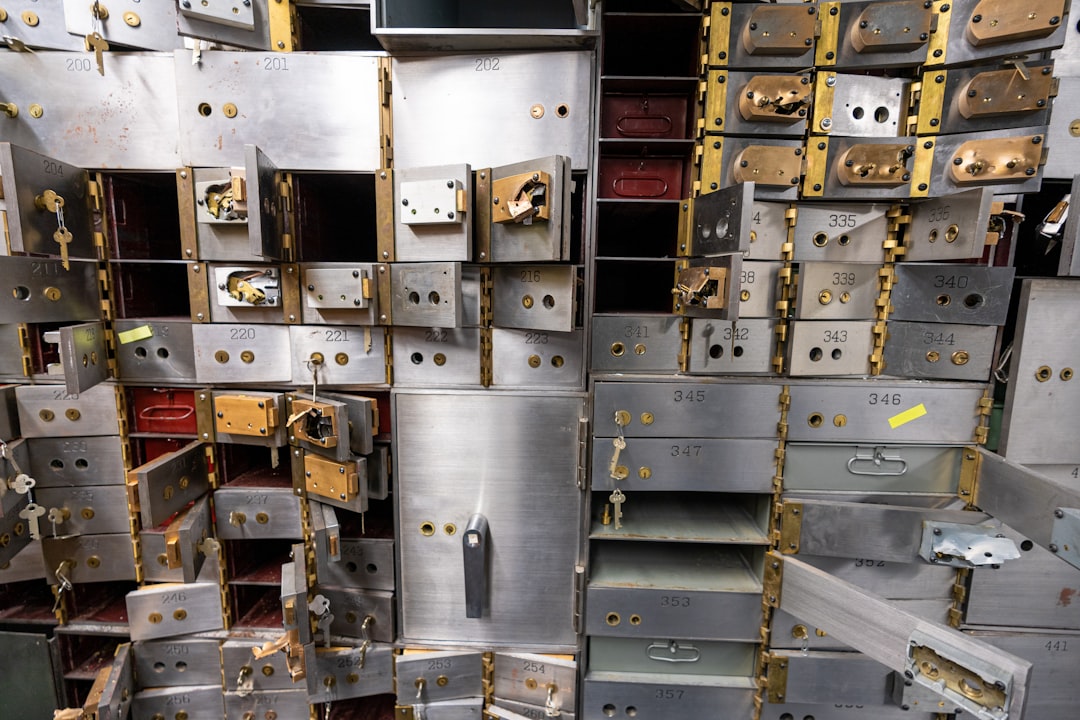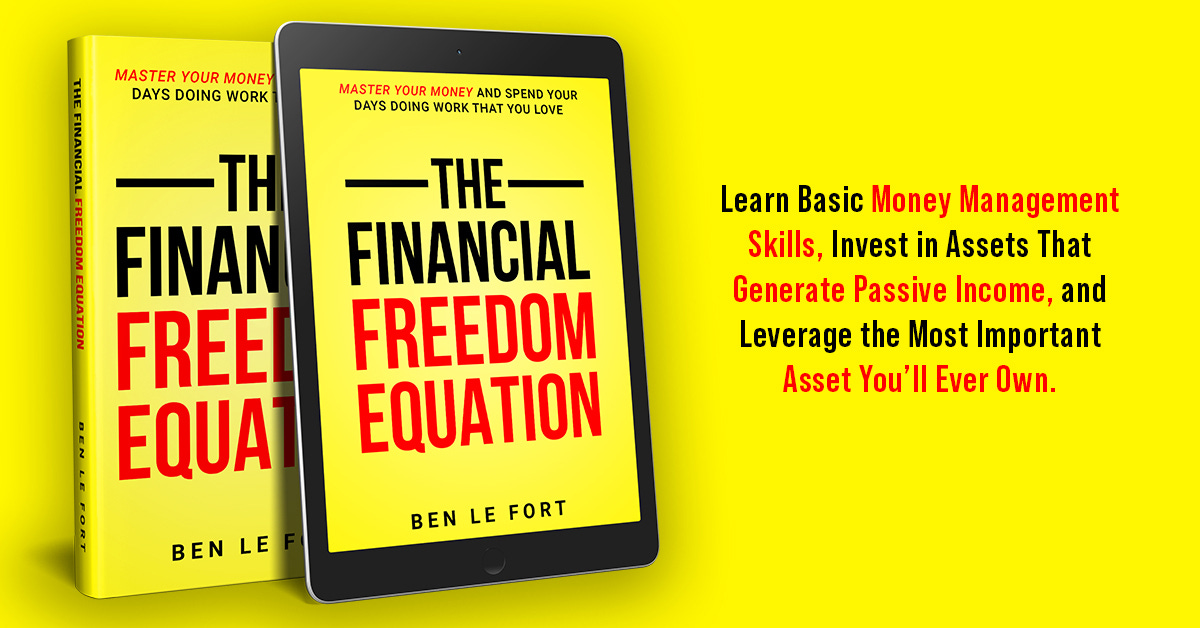How To Navigate This Crazy Economy
How worried should you be about inflation, market crashes and a possible recession?

Today’s newsletter is brought to you by—Me!
The Financial Freedom Equation is now available in print and eBook here, and Audiobook here. (Paid subscribers get the Audiobook for free here.)
In this book, you’ll discover:
The 10 things you need to learn to be great at managing money (page 1)
How creating multiple income streams makes building wealth simple (page 155)
A step-by-step guide to investing in the stock market for beginners (page 171)
A clear off-ramp to know when you have achieved financial freedom (page 219)
Master your money and take control of your life with The Financial Freedom Equation.
Now, on to today’s post.
Inflation is 8.5%, mortgage rates are 6%, and the stock market is down nearly 25%.
In the blink of an eye, the economy feels like it could be heading in a scary direction.
Of course, I don’t know what the future holds, and panicking is never the solution to a problem. But, there are real concerns about what’s happening in the economy and, more importantly, the impact it could have on your finances.
In this post, I will address each of the major narratives driving the news and apply the evidence and logic to each of these issues—I will not be making predictions as that is not what I do.
Inflation
Everything scary economic narrative right now ultimately comes back to inflation—it is the epicenter of all the problems we are dealing with.
I won’t spend much time on “What is causing inflation” because, frankly, it’s a perfect storm of issues.
War in Ukraine.
Massive fiscal and monetary stimulus during COVID—Increasing consumer demand.
COVID wreaking havoc on supply chains.
Higher Inflation= higher interest rates
A more important question than what caused inflation to spike is what impact will it have on the economy?
The most immediate impact of higher inflation is higher interest rates. While much of the focus has been on the overnight rates set by the Federal Reserve and other central banks, the more important impact is on mortgage rates.
Part of the reason people have been paying $1 million+ for 3-bedroom homes is that mortgage rates were so low it was easier to make the mortgage payments work.
At the time I write this, the average interest rate on a 30-year mortgage in the U.S is nearly 6%. That is basically double where it was a year ago.
A $1 million mortgage at 3% is a stretch for most people, but at 6%, the math simply doesn’t add up. That’s $60,000 per year in interest alone.
Something is going to have to give.
Mortgage rates will need to come down, or prices will need to come down.
As I pointed out in a recent post, the people who will have the easiest time navigating this insanity are current homeowners who locked in a fixed mortgage before rates spiked.
The greatest benefit of homeownership in 2022 is that it acts as a form of rent control.
The second greatest benefit of homeownership using a fixed-rate mortgage is beating inflation.
I am in a fortunate position where my mortgage rate is fixed at 2% while inflation runs at 8.5%. That’s a losing deal for the banks, which is why mortgage rates are rising so quickly.
Even if you are renting, there’s a strong case to be made for simply sitting put and seeing what happens in the housing market.
How to fight inflation
The only question that really matters is what do you about high inflation?
I’ll come at this from three angles:
As a worker.
As an investor.
Managing money in a recession
Focus on income
Priority #1 for all of us is focusing on our job security. When inflation and interest rates rise, businesses look to cut back on expenses.
And what is the biggest expense for most businesses?
You and me, the workers.
Having to pay more money for things we buy is unpleasant. Having no income while prices are high is devastating.
Now is a perfect time to bring your A-Game at work and remind your employers of why they can’t live without you.
If you have spare time in your personal life, it’s also a perfect time to start a side-hustle.
Side-hustles were all the rage in 2020-2021 as a way to increase income and go on the financial “offensive.”
In 2022, side-hustles can help you play financial defense. Losing a job or having your hours reduced is less painful if you have other income streams to pick up the slack.
Diversification of income is just as important as diversification of investments.
Surviving the stock market meltdown
At the time I write this, the S&P 500 is down 23% from its all-time high.
We are in official “bear market” territory, and volatility will likely persist.
In chapter 34 of The Rational Investor, I discuss in great length the problem of trying to hedge inflation.
Here are the highlights.
Once inflation is here, it’s too late to hedge inflation.
True inflation hedges (assets that go up when inflation rises) are a draft on portfolio returns in years with normal inflation (most years.)
Inflation is only one specific risk investors need to worry about.
Rational investors focus on outpacing inflation in the long run rather than hedging against it.
That means investing in productive assets like stocks and sitting still and doing nothing.
The asset that gets hurt the most by inflation is bonds.
Bonds pay a fixed interest, so the higher inflation is, the less valuable those fixed payments become.
Higher inflation leads to higher interest rates.
Higher interest rates lead to lower bond prices.
The fact is that bond investors are in for some short to medium-term pain. Believe it or not, the bond market is actually down more than the stock market over the past year.
So, what is a rational investor to do?
Nothing.
If you are investing for the long run and are properly diversified, the best course of action is almost always to sit still, do nothing and wait it out.
That’s boring, and in this case, it’s painful, but the pain investors feel in 2022 is the cost of the higher returns they will experience in the future.
Is your portfolio and investing strategy a complete mess right now? Then you might want to consider becoming a paid subscriber and unlocking The Rational Investor, a guide to sensible investing, here.
Managing money in a recession
How do you manage money if you think we’re going to go into recession?
By doing the things, you should already be doing in a booming economy.
Focus on increasing your savings rate
Building an emergency fund
Paying down debt
Maxing out retirement accounts
Investing surplus money
Looking for ways to create multiple income streams
You should be much more worried about planning for a personal recession which can be triggered by all sorts of events that have nothing to do with national GDP such as:
You get fired
You get sick or injured
Your car breaks down
Your roof blows off
You get divorced
You make an awful money decision like buying a boat
Focus less on making money moves dictated by scary headlines and focus more on managing money in a way that will minimize the odds you enter a personal recession.
Because guess what?
If we do have a recession, it will be a wealth-building opportunity for those in a financial position to take advantage of it.
In every booming economy, there are millions of people who are living in poverty.
On the flip side, many people during the great depression and the 2008 financial crisis became wealthier during these painful recessions.
When it comes to managing money during a recession, the state of your personal finances is infinitely more important than the national unemployment rate.
We live in uncertain times, but you’re not alone. Do you have a money question or a problem you need help with? Leave a comment below or join our discussion thread here.
This article is for informational purposes only. It should not be considered Financial or Legal Advice. Not all information will be accurate. Consult a financial professional before making any major financial decisions.




As someone who takes the planetary disruptions seriously I'm considering installing solar panels. I would like to do it in a manner that also makes Financial sense, including lost opportunity cost of money invested in the project. How would you approach the question. If possible, we will never move again.
That sounds rational for someone who is already invested and diversified. What about for someone who has been sitting on piles of depreciating cash like your wife was and is now convinced, thanks to you!, to deploy and maximize saving/investment? I am convinced to deploy in low cost diversified global equity index ETF. But what about bonds? Should I deploye now, or rellocate after the “short to medium term pain” as you call it?